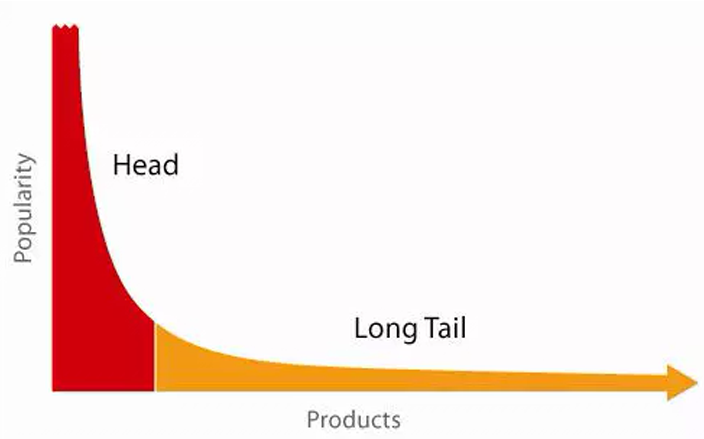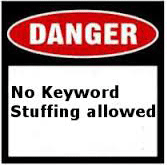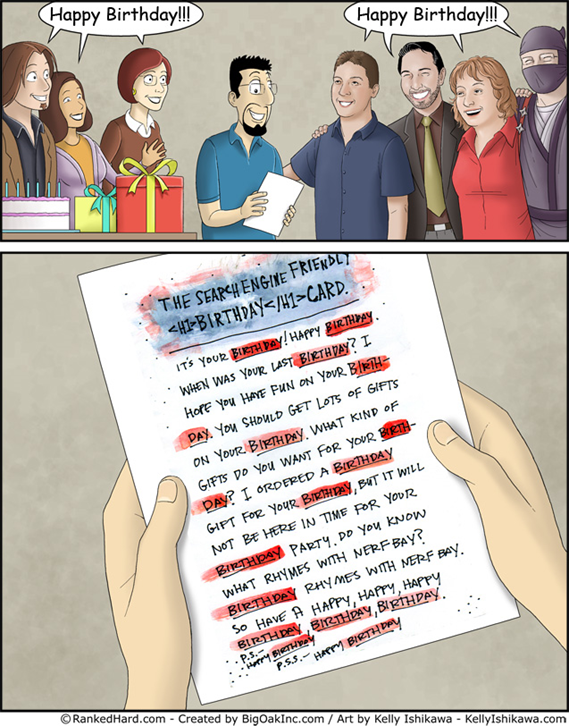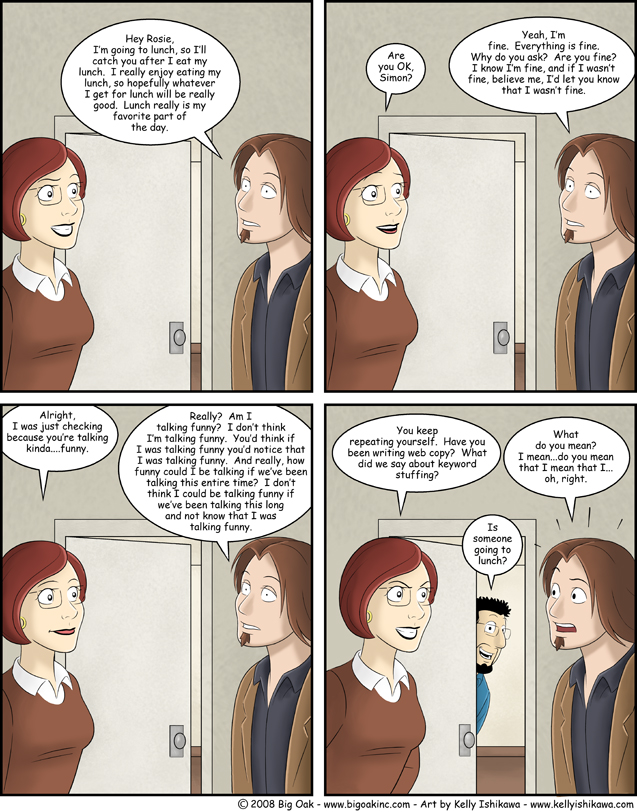10 SEO Mistakes Small Businesses Make
Small business SEO isn’t obvious
 I often explain that despite the “Magic” in our company name, SEO isn’t magic, and there really should be no secrets about how it works. Nevertheless, it does require a little shift in how you think about your website to understand what works and why. Small business SEO mistakes can be pretty easily avoided if you know what they are.
I often explain that despite the “Magic” in our company name, SEO isn’t magic, and there really should be no secrets about how it works. Nevertheless, it does require a little shift in how you think about your website to understand what works and why. Small business SEO mistakes can be pretty easily avoided if you know what they are.
Startups and small business owners, especially those with cash flow concerns, often try to do things for themselves. We found that there are some common SEO mistakes that small businesses make which are easily avoidable.
Here’s a list of the top ten things small business owners often mess up when trying to do SEO. (Needless to say, if you want or need professional help in optimizing your site without making these errors, Rank Magic is here to help.)
Much of what follows comes with a tip of the hat to the folks at Search Engine Watch; if you’d like to read a bit more about this from their perspective, here’s their article on the subject.
Neither are some of these ten common mistakes
1) Waiting too long
Small business owners often spend months or years designing their websites and creating content. Without an SEO strategy in place from the beginning, they often find their efforts to be sub- optimal.
When they come late to the SEO process, very often much of what they have worked on so diligently on the website needs to be redone in accordance with SEO best practices.
The best time to start SEO is when you start designing (or redesigning) your website. This may be the single most common small business SEO mistake.
2) Avoiding low-competition keywords

Optimizing for appropriate low competition keyword phrases is easier and much more likely to result in success over the shorter term.
For local businesses, niche keyword phrases might include a county, town, or neighborhood. Think electrician on the upper East Side or Indian restaurant in Morristown.
Those kinds of keyword phrases narrow your competition dramatically and make it much easier to achieve first page rankings. At Rank Magic, we do extensive keyword research and analysis for our clients.
3) Optimizing for Google instead of the customer
 Just about anything you do on a website specifically for Google, is likely to fail to address the needs of your customers. As Google has improved over the years, it’s gotten very smart about identifying websites that are helpful to users as opposed to being focused just on Google. It’s important to bear in mind that the user experience on a website is a ranking factor at Google.
Just about anything you do on a website specifically for Google, is likely to fail to address the needs of your customers. As Google has improved over the years, it’s gotten very smart about identifying websites that are helpful to users as opposed to being focused just on Google. It’s important to bear in mind that the user experience on a website is a ranking factor at Google.
4) Ignoring or avoiding long-tail keywords
Long-tail keyword phrases are more precisely focused on your products or services than more general terms. A new plumbing company may optimize for the keyword plumbing.
But most people searching for that phrase are looking for general information about plumbing — or perhaps jobs in the plumbing industry — rather than looking to hire a local plumber.
The keyword plumbing services receives fewer searches per month but is much more closely focused on the needs of the plumber’s customers. An even longer-term phrase for one of this company’s services might be sump pump repair or sump pump leak. Our new plumbing company is likely to have much better success with these long-tail phrases.
5) Ignoring the code
I see this often, especially with new businesses that have tried to create their own website using one of those do-it-yourself sites like GoDaddy or Yahoo Site Builder. The code that runs the website is not visible on the page and is easy to ignore. But that code includes lots of information critical to search rankings and to conversions once you do show up in a search. Things like

- The page title, which shows up as the headline of your listing in Google,
- The meta-description tag, which often shows up as part of your listing in Google,
- Page and image file names,
- Image alternate text,
- URL structure and more.
These items all relate to the underlying code of your web pages which either A) help Google understand what the page is about and the value it offers or B) contribute to the likelihood of someone clicking on your listing when it shows up in Google.
6) Keyword stuffing
The now-ancient practice of keyword stuffing involves using a keyword phrase over-abundantly on the page in the hopes that it will convince Google the page is really, really, really about that phrase.
It doesn’t work. And it makes the user experience on the page really crappy, driving people away instead of converting them to paying customers. This is a small business SEO mistake that was usually made many years ago and has just never been fixed. If it applies to you, it’s time to fix it.
7) Forgetting internal links
Once you have people on your site, you want them to stay long enough and learn enough about you so they want to do business with you. Internal links – links among the various pages on your site foster those more extensive visits on your site.
8) Not measuring results
![]() You need to know if your efforts are working or not. If they’re not helping, you know you need to change things.
You need to know if your efforts are working or not. If they’re not helping, you know you need to change things.
- How are your search rankings doing over time?
- How much traffic are you getting from search?
- Is it improving?
You need to know this. Rank Magic provides extensive reporting to our clients on the essential things they need to know but if you’re not a client of ours you should take steps to track results yourself.
9) Focusing on features instead of benefits
You’re enmeshed in your business and are proud of the features of your products or services. Small businesses often get bogged down in the details of those features and go on at length about them.
Guess what? No one cares.
Your customer cares about benefits, not features. They want to know how you can address their concern or relieve their problem. They won’t search for a high tech toilet float valve — they want you to stop their leaky toilet.
This is one of those SEO mistakes that small businesses make that requires you to change your perspective about what to tell people about your business.
Learn more about customer-focus in this blog post.
10) Forgetting about calls to action
Order a hamburger at any fast food restaurant and I’ll bet the person taking your order asks “You want fries with that?” They sell a lot more fries because they ask. That’s known as a call to action.
 We all think our website copy is going to make us irresistible and will make users reach out to us without us having to ask. We’re delusional about that.
We all think our website copy is going to make us irresistible and will make users reach out to us without us having to ask. We’re delusional about that.
What do you want your website users to do? Buy something? Call for an appointment? Subscribe to your newsletter? Ask them.
To finish up this post, here are a few examples of calls to action:


 Stop it! Don’t use them.
Stop it! Don’t use them.


 Search engines need to understand that your page is really “about” the keyword phrase that was searched.
Search engines need to understand that your page is really “about” the keyword phrase that was searched.




